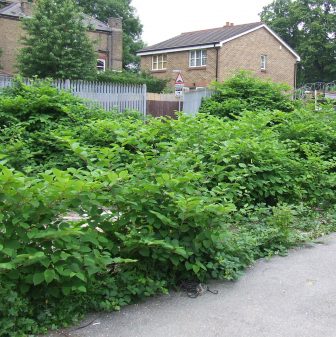 Homebuyers in the UK are being warned that they could unknowingly buy a property affected by Japanese knotweed after it emerged that some sellers are failing in their legal obligation to disclose it.
Homebuyers in the UK are being warned that they could unknowingly buy a property affected by Japanese knotweed after it emerged that some sellers are failing in their legal obligation to disclose it.
A YouGov survey of over 2,000 people found that 9% of respondents admit they would say nothing when selling a property with knotweed and quietly attempt to deal with it themselves, despite the likelihood of a legal case against them when it’s discovered.
It is a legal requirement for sellers to respond honestly to the Japanese knotweed question on the TA6 form, which is completed as a standard part of the conveyancing process.
Based on approximately 1 million residential transactions that took place during 2023, with an estimated 5% of properties in the UK affected by knotweed, as many as 4,500 homebuyers could be duped into buying a home, unaware that the invasive plant is present. Once a transaction has completed, they have little choice but to either swallow the cost of removal or treatment themselves or pursue legal action against the seller.
Of those surveyed, 3% stated they have already found themselves in the unfortunate position of discovering Japanese knotweed after they purchased a property.
The survey also showed that despite 77% of people claiming to be aware of Japanese knotweed, only 12% could correctly identify it from a gallery of six photographs of different plants, including bindweed and lilac.
Buyers and sellers who are unsure whether a plant could be knotweed are advised to check carefully online for pictures showing its appearance at the specific time of year, to account for seasonal changes, or commission a professional survey.
Nic Seal, founder of Environet, which commissioned the poll, said: “Discovering knotweed growing in the garden after you’ve bought a property is a very unpleasant and worrying situation to be in. If it can be proven that the plant was present at the time of sale, there is a very good chance of success in a legal case against the seller.
“Therefore, anyone who answers ‘No’ to the Japanese knotweed question on the TA6 form needs to be 100% certain that the property is not affected, which means no live rhizome under the ground of the property or abutting in the neighbouring land. That’s a difficult undertaking, so the general advice is to respond Not known”


Comments are closed.